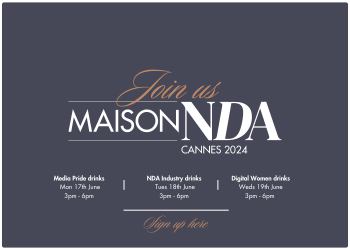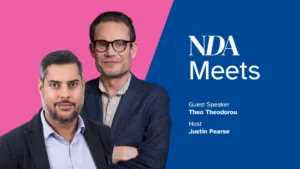By Kate Hartley, co-founder, Polpeo and author of Communicate in a Crisis
If a brand promotes itself as inclusive, at some stage it will face a backlash. There are a lot of haters on social media – often amplified by bots and AI. The test of whether the brand really is inclusive (or whether its values are just performative) is in how it responds to that backlash.
We’re seeing a huge number of brands coming to us for simulations that prepare them to deal with negativity. They want to stand by their values, and practising how they do that is important. It helps build resilience in their teams, tests their values, and is a great way to spot any issues before they go live with a campaign.
Sadly, there have been a lot of examples of brands that haven’t thought through the implications of a campaign that promotes or engages with the LGBTQIA+ community (particularly if Pride is the only time of year the brand does this).
They might be dipping their toe into an area either because they think it’s the right thing to do, or because everyone else is, or to try to attract a new audience, and then underestimate just how polarised the response might be. They’re often not prepared, and that can lead them to give in to pressure from anti-LGBTQIA+ rights groups, when they could do something really amazing and take a stand against hatred.
Last year, Target had a horrible backlash from right wing anti-trans campaign groups for stocking products made for trans customers or made by trans designers. It’s promoted Pride for years, but when people came into stores and threatened staff, it made the decision to remove the products.
That in turn led to a backlash from LGBTQIA+ campaigners, including the designer of one of the product lines that was removed, saying Target should have stood by its principles.
And of course, there’s Bud Light, which faced a horrendous backlash when it sent a customised case of beer to influencer Dylan Mulvaney – part of a much larger influencer campaign. The reaction was unbelievable, with protests, boycotts, and threats of violence, fuelled by Kid Rock shooting at cans of Bud and streaming it on social media.
The brand backtracked completely. Anheuser Busch InBev’s CEO said in a statement (called ‘Our Responsibility to America’) it had made a ‘marketing misstep’, and Bud Light ‘never intended to be a part of a discussion that divides people’, but rather was in the ‘business of bringing people together over a beer’.
He called the brand part of the ‘fabric of this country’, and referred to ‘thousands of partners, millions of fans and a proud history supporting our communities, military, first responders, sports fans and hard-working Americans everywhere.’
The implication is obvious. It will support all communities apart from the trans community.
As a result, the Human Rights Campaign Foundation has removed its top rating for Anheuser Busch as a top LGBTQ+ equality company.
If you’re going to promote yourself as inclusive – and I really hope it’s a given that the majority of brands understand why it’s important to do so – your actions have to stack up. My co-founder, Tamara Littleton, said in a blog post for Polpeo recently:
You can’t collaborate with a trans campaigner if you’re not prepared to defend your position if you come under attack. You can’t claim to celebrate diversity if you give in at the first sign of pressure. And if you’re not expecting a backlash, then you probably don’t know this subject well enough to get involved.
A crisis is a real test of your values. It’s a chance to show what you’re made of. If you value inclusion, are you going to do a Bud Light, and cave when people tell you to exclude certain groups? And if you do, what does that say about what and who you value?
Then of course you need to equip your team to deal with it, and make sure they’re all on board, too. Do they believe in your stand? Do they support it? Are they the right people to deal with the backlash, and can they do it without making it worse?
We live in a world where polarisation, outrage, and divisive speech are just normal. To some extent, we have to learn to live with it. And be brave enough to stand up for the values we claim to care about.
Outspoken, The Unmistakables and Polpeo are joining forces to host a practical, hands-on session for comms directors, brand directors, teams and agencies. You’ll leave with a better understanding of how you can prepare for Pride and actively support and engage with the LGBTQ+ community all year round in your communications strategies, activations and preparation. You can sign up here








